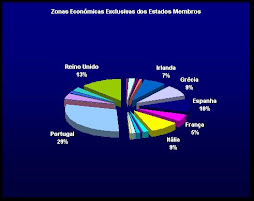
The Minister of Fisheries & Coastal Affairs, Helga Pedersen, says Norway will introduce new requirements, for instance as a condition for obtaining licenses to fish, that vessels in Norwegian waters cannot discard valuable fish caught there. “In connection with the annual quota negotiations between EU and Norway this autumn, Norway will demand further binding measures to reduce the discard of all joint stocks,” explains Pedersen. “In order to conduct fishing in Norwegian waters a foreign vessel must accept that catches in these waters have to be landed. If there is evidence that a vessel has dumped fish caught in Norwegian waters the licence will be withdrawn. Norway intends to work closely with the EU in order to implement further measures to reduce discards.” Ultimately, Norway will ask the EU to introduce a discard ban (with some practical exceptions) to EU waters in the North Sea and Skagerrak. This discard ban should be combined with technical measures that will reduce the incentives and risks for discarding. In addition, Norway will push for a discard ban for mackerel in the Exclusive Economic Zones and on the high seas from 2009, which should be combined with a prohibition against carrying installations that can be used to grade or discard mackerel onboard vessels.
It is also hoped that Norway together with the EU can develop a network of Teal Time Area Closures (RTCAs) in the North Sea starting the first half of 2009. RTCAs are essential tools to protect juveniles, spawning areas and generally avoid unwanted by-catch.
According to the Ministry of Fisheries & Coastal Affairs, discard is currently one of the most serious threats against sustainable management, and this is particularly the case for those fish stocks that Norway co-manage with the EU in the North Sea. Norway therefore wants a further tightening of the rules governing dumping of fish caught by foreign vessels in the Norwegian Exclusive Economic Zone.
Food and Agriculture Organisation of the United Nation has previously estimated that about 7.3 million tonnes of fish in average are discarded every year. This constitutes a loss of valuable food, has negative consequences for the environment and biodiversity, and is ethically offensive.
Recently a foreign vessel was observed while discarding large quantities of fish caught within Norwegian Exclusive Economic Zone. The fish was dumped once the vessel had left Norwegian waters and entered the EU-zone, and on this occasion only, more than 5000 kilo of fish went to waste. The incident was documented by the Norwegian Coast Guard, and is under the current legislation illegal in Norwegian waters, but not in EU waters, and Norway cannot impose its national legislation on foreign subjects in international waters.
Norway will now introduce additional measures to avoid such incidents in the future and require that all fish that are caught in Norwegian waters, also by foreign vessels, must be taken to port, regardless of which final port is used.



Sem comentários:
Enviar um comentário